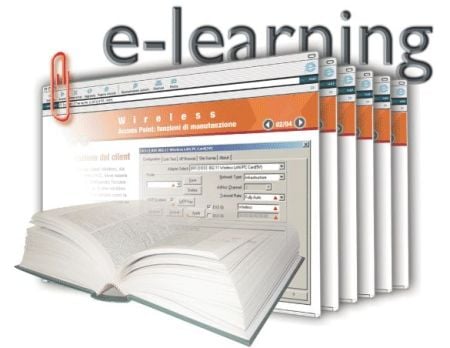ADSENSE Link Ads 200 x 90
ADSENSE 336 x 280
When
I initially wrote this eight years ago, it was relatively easy to set
up online colleges here in California because of the lack of regulation.
My online university start up is on hold due to my personal finances,
failed partnership, and to be frank a lack of commitment. My friends and
family think it is strange for me to share my knowledge on starting an
online college when I have for the most part failed. I don't. I
successfully completed all steps, but was not able to maintain momentum.
My goal is to show people that with effort and commitment, it is
relatively easy to create an online college.
With a day job, doctorate courses, and a family, it took me 6 months to complete and take my school to the market place, and thats where it ended. These days I promote and am a part of the Free Openware College Education Movement, and I am attempting to reboot my online university, and I'm looking for help. I'll explain later in the article.
Another thing I would like to add is that it takes a strong and committed attitude to see this process through from beginning to end. Secondly, you must hold a Masters Degree in any major. Can a person with a Bachelors or non degree person, follow these steps and be successful? Probably. But you want to start this project with some sense of legitamacy and you also want to reflect that legitamacy to your students. Also, believe it or not, the start up costs are very minimal compared to other start ups ventures.
With a day job, doctorate courses, and a family, it took me 6 months to complete and take my school to the market place, and thats where it ended. These days I promote and am a part of the Free Openware College Education Movement, and I am attempting to reboot my online university, and I'm looking for help. I'll explain later in the article.
Another thing I would like to add is that it takes a strong and committed attitude to see this process through from beginning to end. Secondly, you must hold a Masters Degree in any major. Can a person with a Bachelors or non degree person, follow these steps and be successful? Probably. But you want to start this project with some sense of legitamacy and you also want to reflect that legitamacy to your students. Also, believe it or not, the start up costs are very minimal compared to other start ups ventures.
Here are the step that I took to create my online college:
Educating yourself on web-based training and instruction, online learning, and technology education.
Create A Clear Mission and Goal Statement
Get Partners and Co Founders Who Share Your Vision
Create A Business Plan
Establish Costs
Develop Your Majors Cirriculums, and Courses
Create A Web Page
Become Legal
Investigate And Follow Accrediting Guidelines
Setting Admissions Standards
Recruit
Charge Small Fees
Apply For Accreditation

Educating yourself on web-based training and instruction, online learning, and technology education.
Understand The Basics of Learning
The three basic learning styles that are highlighted by learning experts are the following: Auditory learning occurs through hearing ; Kinesthetic learning occurs mostly through interacting; Visual learning
occurs through looking at facial expressions,, body language, and
giving examples. There is evidence that if teaching tactics were to at
least cover some aspects of all learning styles, there would be a
greater degree of success. Studies have shown that when an instructor
connects teaching techniques to the ways in which students learn, this
can significantly enhance academic achievement, student attitudes, and
student behavior at all levels of education.
Using a student's preferred way of instruction exclusively may not be
the best thing you can do when teaching a class. Students will
eventually have to perform in a class and face issues that require the
use of their less preferred learning style. Some education experts
caution that stress, frustration, and burnout may occur when students
have to endure over time teaching styles that do not match the learning
style choice of instructions.
Within these various formats online education course developers must
include some degree of learning development theories. In developing on
line courses, course developers must keep in mind and account for
various learning styles. When courses are given on line, instructors
cannot interact the classroom to see if students are falling asleep or
in a zombie like trance, and because of this, instructors do not know
the best method to use thus course developers must account for all
learning styles
What Tools and Technology Is Used To Teach Online Courses.
At first start small. Simply use e-mail to teach your course. Updated
e-mail programs allow you not only to send text, but also video and
audio streams.
Companies such as Apple Computers, Web CT, and Blackboard
have packaged all of these formats and offered them to various colleges
and universities. Through ITunes, owned by Apple Computers, colleges
and universities can offer web cam and audio streaming technology so
that students can listen and view courses through their iPods. Apple
also now offers customized web pages for instructors to administer their
courses. Students can not only listen or view their lectures through
their iPods, but also upload their assignments via the web site. Despite
these technological advances, critics center their attention on
technology as a reason for the lack of academic rigor in on line
courses. Continued
Get To Know People Who Share Your Vision

Get Partners and Co Founders Who Share Your Vision
Place a free ad in Craig's List Small Business section.
State that you are a small online private college that offers degrees
and low cost courses in the areas you choose. Also state your mission
statement, and state that you are looking for prospective students,
teachers, and co founders to help establish the institution. When I did
this, I received a tremendous response
The most effective ad that you could place is a Craigslist job ad
where you would state that you are looking for Co founders for your
online school. If you choose to do this, you must emphasize that this as
a business opportunity. You must also state the time commitments, how
costs will be divided, and how profits will be shared. Decide how many
fields or majors you would like to emphasize, and choose that many
partners. Divide task among the partner such developing cirriculums,
recruiting, developing a business plan, or any tasks you wish to be
divided.
Can you do this by yourself? Yes you can, but I would suggest the focus should be on one major, preferrably, your major.
I would also recommend that you establish a legal binding partnership, or if you are doing this yourself, establish a sole proprietorship.

Create A Business Plan
I assume that anyone who puts in the effort to create an online
school will want to make some money, but there may be some who are doing
this for philanthropic reasons. If you wish to know how to set up your
school as a non profit organization go to this site.
The world of business and education often do not mix. As long as
schools reflect fairness, transparency, and flexibility in pricing out
tuition and fees, online colleges can successfully make profits while
serving the needs of students.
Why Write a Business Plan?
Why should a business go through the trouble of constructing a
business plan? There are five major reasons :
(http://www.va-interactive.com/inbusiness/editorial/bizdev/ibt/business_plan.html#1)
- It assists in creating a niche where you address these question what type of courses will I be teaching? Are these courses in demand.
- It helps to focus ideas and serves as a feasibility study of the business's chances for success and growth.
- The finished report serves as an operational tool to define the company's present status and future possibilities.
- It can help you manage the business and prepare you for success.
- It is a strong communication tool for your business. It defines your purpose, your competition, your management and personnel. The process of constructing a business plan can be a strong reality check.
- The finished business plan provides the basis for your financing proposal.
The Small Business Administration web page has free business plan templates and free easy to follow instructions on how to set up your business.
Costs
The start up costs for your online college is extremely minimal. Here is a list of potential expenditures:
$11.00 per year- Web Page W/ Online Form Making Capability, priced at Go Daddy
$185.00- Based on 500 bw and 500 color copies. Copying Charges For
Flyers Both Color & B/W $.07 per copy (BW) and $.30 per year (color)
$75 per week Craigslist Job/Business Opportunity Advertising
$129.00 Legal Zoom Partnership Services
$15 per month SBC Yahoo High Speed Internet
$30-$50 Service Charges To Establish A New School In Your State. Prices vary from state to state.
$900-$2000 Accreditation Fee (Optional), This depends what type of accreditation suits your school.
Your Majors, Cirriculums, and Courses Are The School's Selling Points!

Develop Your Majors and Curriculums
After you have established your partnerships both legally and
logistically, plan and plot out your college course offerings in this
order; majors, cirriculums, and courses.
Developing Majors and Deciding Who Teaches What
Developing majors around your expertise and your base knowledge is
the way to begin. Understand the differences between Associates Masters
and PHD Degrees. I would advise all stake holders to at least have a
Masters Degrees since it is these degree holders that can teach
Associate and Bachelors students. Colleges with PhD holders can teach
and offer any or certain degree programs. Most accrediting agencies
require most courses at 2 year and 4 year schools to be taught by
Masters Degree holders. Another strategy would be to develop majors
around in demand industries/careers.
Developing Majors
You do not need to reinvent the wheel. Established colleges have been
developing curriculums and courses for years and some for centuries.
And since most colleges and universities place their Major and cirriculm
descriptions online, you can simply go to any school’s site to get an
idea how to develop courses and majors. Understand the differences
between: Associates, Bachelors, Masters, and Doctorates Degrees.
From my research, I have not found one state that has mandates on how
colleges and universities should organize programs, but despite this
remember these rules:
Offer 3 unit courses- At traditional schools 3 units/credits
represent how many hours spent in class per week. In terms of online
courses, developers organize assignements and activities that would
reflect 3 hours per week of online activity.
Here are some suggestions of how to set up your degree programs.
Associates and Bachelors degrees are somewhat similar in that they both
have General Education and Major related courses, but they are different
in terms of the number of courses. Masters and PhD programs focus
heavily on research.
Associate Degrees- These are usually 63 units. Completed within 1-2 years
Bachelors Degrees- These are 120 units. Be aware
that in order to make degrees competitive and uphold standards, you may
need to have certain program meet certain accreditation
guidelines—though this may not be nessesary. These degress are usually
finished within 2-4 years.
Masters Degrees- Research related degree that shows mastery of knowledge. Are usually 36 units.
PhD or Doctorates- Between 51-81 depending upon
whether or not the college will accept Master's Level courses. Since
Doctorates are intensely specialized, there is not really a definite
template. If you do plan to offer doctorates, look at other colleges web
pages to see how the school has structured their courses.
Associate Degree Template
General Studies- Every Associate and Bachelors degree
program has a general education or studies component. The ideas behind
this, is the need for students to have general knowledge of the world a
part from their career endeavors. College Level Math, English, Science,
and the Social Sciences are examples of General Studies courses. General
Studies is what separates college and universities from trade schools.
Below is a general idea of how general education should be distributed,
Basic Skills: 6 Units
College English: 3
Critical Thinking: 3
Math & Science: 9 Units
College Level Math: 3
Physical Science: 3
Life Science: 3
Arts & Humanities: 9 Units
Arts Appreciation: 3
Humanities: 3
Research Writing: 3
Social Sciences: 9 Units
Human Nature: 3
History: 3
Social Issues: 3
Cultural Diversity: 6
Major Requirements- These courses emphasize major/career courses.
Lower Division Major Courses: 12
Fundamentals: 6
Practices: 6
Research Project Courses: 3
Total Units= 66
Bachelor Degrees Template
General Studies
Basic Skills: 3 Units
College English: 3
Critical Thinking: 3
Math & Science: 9 Units
College Level Math: 3
Physical Science: 3
Life Science: 3
Arts & Humanities: 9 Units
Arts Appreciation: 3
Humanities: 3
Research Writing: 3
Social Sciences: 9 Units
Human Nature: 3
History: 3
Social Issues: 3
Cultural Diversity: 12
Major Courses: 49
Core Courses: 24
Theory Courses: 15
Practical Application: 18
Research Project: 3
Electives: 15
Total= 120 Units
Masters Degrees Template
Foundation: 3 Units
Emphasis: 18 Units
Research: 9 Units
Electives: 6 Units
Total Units= 36
When deciding to place course in these template simple use another
universities example. You and your partner should comb different
university web pages and decide which courses to plug in.
It Is Time To Develop Your Courses And Learn How To Teach Online
Simply posting a syllabus online and having students complete
assignments does not constitute an online class. Many students who have
taken online courses will tell you that they had received the best
learning experience from an online course where they had interactive
teachers and a user friendly web site. Online instructors do not have
the luxury of looking at a lecture hall and determine the interest level
of the students nor can they easily determine if students are actually
learning the material. Attentiveness and comprehension are top concerns
of online instructors.
Keep Teaching Simple At First
I would keep it simple at first and have students turn in assigments
and communicate through e-mail, and as time goes by, you can update your
delivery systems. Also allow students to call you if nessesary.
Create Student Files
As students, turn in assignment, keep records of everything; e-mails,
tests, quizzes, and papers. Create word document folders for all
students that contain the above items Continued
Create A Basic Webpage
If you have taken online courses, you may have noticed, a main web
page, with a message board function, your instructors contact
information, a place where you can upload your assignments/files, and
updates. This is not nessesary at first, your basic web page should
consist of five pages:
Introduction Page: This shows you mission and goal statements, a
basic outline of your majors, the types of degrees, your goals for the
student
Course Catalog Page- After you and your partners search for
courses to plug in your templates from various web pages, create a word
document, cut and paste course descriptions on the document. Be sure to
re word each course entry to avoid copyright infringement.
- You may also want to look and possibly copy a similar online university’s policy and procedures to think about establishing similar polices and procedures. Discuss this fully with your partners. This process may take days or weeks depending on how many majors and courses you are going offer.
- This page should also explain and outline your programs and majors
- This document is amorphous. It can constantly change. Once you have established admissions, recruitment, grading procedures, place these in the catalog. Think for your school's catalog as an intruction manual to your school.
Contact- This page lists all of the instructors and contact information.
Accreditation- This page explains where you are at in the
accreditation process, and which agency you are focuisng on. State
cleary, that your accreditation is pending. State clearly that your
school is state approved. I would provide a link to your potential
accreditor.
Apply Page. This page will have an interactive application form
for your students to fill out and submit. Your web page should have this
functionality, if not call your Web Service Provider.
Source https://hubpages.com/education/How-to-Start-Your-Own-Online-College

0 Response to "How to Start Your Own Online College"
Post a Comment